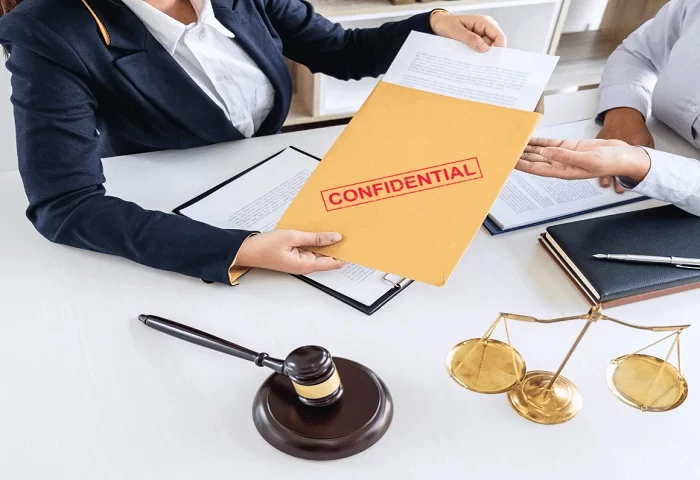- understanding-conspiracy-charges-in-criminal-law
- key-elements-of-a-conspiracy-offense
- effective-defense-strategies-in-conspiracy-cases
- case-studies-and-real-world-stories
- professional-guidance-and-your-next-steps
Understanding Conspiracy Charges in Criminal Law
Facing a criminal conspiracy charge can be overwhelming and frightening. Many people aren’t even aware that casual conversations, group texts, or loosely formed plans can quickly become the foundation for serious allegations of conspiracy. The law surrounding conspiracy is unique—unlike other criminal charges, you can be prosecuted even if the intended crime was never actually committed. That’s why understanding how conspiracy works, and the possible criminal defense strategies available, is crucial for anyone accused.
Conspiracy charges often come with harsh penalties and long-term consequences. They’re also a favorite tool for prosecutors, who can use the law’s broad definitions to charge multiple people based on minimal evidence. When the stakes are this high, consulting with an experienced legal team like Fred Miller Lawyer is one of the smartest moves you can make.
Key Elements of a Conspiracy Offense
Successfully defending against conspiracy charges means first understanding what the prosecution must prove. Every conspiracy case is built on three main elements. Missing even one can mean the difference between conviction and acquittal.
1. Agreement Between Parties
At the core of every conspiracy allegation is the claim that two or more people entered into an agreement to commit a crime. This agreement does not have to be written or even spoken aloud; it can be implied from actions and communications. The challenge for prosecutors is often proving that a true meeting of the minds occurred, not just casual talk or independent actions.
2. Overt Act Requirement
In many jurisdictions, the prosecution must show that at least one member of the alleged conspiracy took an overt act in furtherance of the plan. This act doesn’t have to be illegal itself—it just has to move the agreement forward. For instance, renting a storage unit or making a phone call related to the alleged plan might qualify. However, the absence of a clear overt act can become a strong point for the defense.
3. Intent and Knowledge
Proving that each defendant knowingly joined the agreement and intended to commit the crime is a vital part of any conspiracy prosecution. If someone was merely present or didn’t fully understand the plan, they should not be found guilty of conspiracy. This is often where individualized defense strategies make a difference, especially when people are swept up in broad investigations.
Effective Defense Strategies in Conspiracy Cases
The right criminal defense for individuals facing charges of conspiracy is always tailored to the unique facts of the case. No two situations are the same, and a successful defense often comes down to the details—evidence, witness credibility, and the defendant’s own actions and intent. Below are some of the most effective and commonly used strategies.
1. Challenging the Existence of an Agreement
If there’s no clear evidence that an actual agreement existed, the conspiracy charge may not stand. Defense attorneys will scrutinize text messages, emails, and testimony to show that any alleged “agreement” was vague or not truly criminal. Often, what prosecutors call a conspiracy is nothing more than loose talk or coincidental actions.
2. Lack of Overt Act
Many people are surprised to learn that a single action—or even planning alone—can trigger a conspiracy charge. However, if no clear overt act occurred, the defense can argue that the law’s threshold wasn’t met. Proving the absence of a concrete step toward the alleged crime is a powerful argument in court.
3. Demonstrating Absence of Criminal Intent
The law is clear: mere association or presence isn’t enough for a conspiracy conviction. A skilled defense attorney will focus on showing that the accused did not intend to join or further any criminal plan. This is especially relevant in cases involving large groups or organizations, where innocent people can get swept up by association.
4. Entrapment or Coercion Defense
In certain cases, defendants may have been pressured or even tricked by law enforcement into participating in discussions or plans they would otherwise have avoided. If undercover agents or informants crossed the line into entrapment, this can provide a complete defense. Similarly, evidence of threats or coercion can undermine the prosecution’s case.
Case Studies and Real-World Stories
Conspiracy charges have been the focus of high-profile cases in recent years. For example, in the famous Operation Varsity Blues college admissions scandal, several parents were charged with conspiracy for allegedly plotting to cheat the admissions process. While some admitted guilt, others successfully challenged the existence of a true criminal agreement, leading to reduced sentences or dismissals.
Another story involves a group of friends accused of conspiring to commit fraud after sharing financial advice in a private chat. Upon investigation, it became clear that most members had no intent or knowledge of illegal activity, resulting in the dismissal of charges for those individuals. These cases show how a thorough and creative criminal defense can change the outcome for those facing conspiracy allegations.
Every case is unique. That’s why working with a knowledgeable and persistent legal team, such as Fred Miller Lawyer, is vital for those seeking justice and protection in the face of daunting conspiracy charges.
Professional Guidance and Your Next Steps
If you or someone you know is facing conspiracy charges, timing is critical. The complexity of conspiracy law means that small missteps can have huge consequences. Gathering evidence early, avoiding statements to investigators without legal counsel, and building a strategic defense are essential steps.
Fred Miller Lawyer offers professional, compassionate, and aggressive criminal defense for individuals facing charges of conspiracy. With experience handling complex conspiracy cases, the team can help you understand your rights, evaluate your options, and build the best defense possible. Don't wait—get the right guidance now to protect your future.


 nazaryan law
nazaryan law eric dinnocenzo
eric dinnocenzo hill and moin
hill and moin fogelgaren
fogelgaren shaw divorce & family law llc
shaw divorce & family law llc la century law reviews
la century law reviews